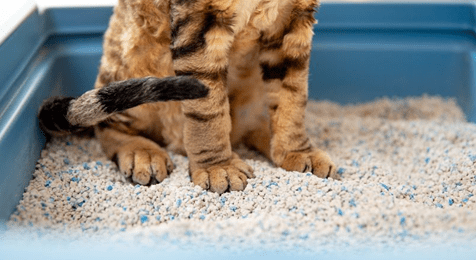Urinary tract infections (UTIs) are a common health issue in cats. They can cause discomfort and pain, and if left untreated, can lead to more serious health problems. Understanding the causes of UTIs and knowing how to treat them at home can help you keep your feline friend healthy and happy.
Urinary tract infections (UTIs) are a common health issue in cats. They can cause discomfort and pain, and if left untreated, can lead to more serious health problems. Understanding the causes of UTIs and knowing how to treat them at home can help you keep your feline friend healthy and happy.
Causes of UTIs in Cats
UTIs in cats are typically caused by bacteria that enter the urinary tract. The bacteria can come from various sources, including the environment, other animals, or even the cat’s own body. Here are some common causes of UTIs in cats:
- Bacterial Infections: The most common cause of UTIs in cats is bacterial infections. Bacteria can enter the urinary tract through the urethra and multiply, leading to an infection.
- Bladder Stones: Bladder stones are hard deposits of minerals that can form in the bladder. They can cause irritation and inflammation, making it easier for bacteria to invade and cause an infection.
- Stress: Stress can weaken a cat’s immune system, making it more susceptible to infections, including UTIs.
- Age: Older cats are more prone to UTIs due to a weakened immune system and decreased ability to fight off infections.
- Obesity: Overweight cats are at a higher risk of developing UTIs, as excess weight can put pressure on the bladder and make it harder to empty completely.
- Underlying Health Conditions: Cats with diabetes, kidney disease, or other health conditions may be more prone to UTIs.
Symptoms of UTIs in Cats
If your cat has a UTI, you may notice the following symptoms:
- Frequent urination
- Straining or difficulty urinating
- Blood in the urine
- Urinating outside the litter box
- Licking the genital area excessively
- Vocalizing while urinating
- Changes in behavior, such as increased aggression or hiding
If you notice any of these symptoms, it’s essential to consult your veterinarian for a proper diagnosis and treatment plan.
Treating UTIs at Home
While it’s crucial to consult your vet for a proper diagnosis and treatment plan, there are some steps you can take to help treat your cat’s UTI at home and many of these will also help with prevention.
- Increase Water Intake: Encourage your cat to drink more water by providing fresh water at all times. You can also add water to their food or offer wet food to increase their water intake.
- Provide a Clean Litter Box: Keep your cat’s litter box clean and free of bacteria by scooping it daily and washing it regularly.
- Reduce Stress: Create a calm and comfortable environment for your cat by providing plenty of hiding spots, toys, and attention. Consider using pheromone diffusers or calming supplements to help reduce stress.
- Dietary Changes: Consult your vet about the best diet for your cat, especially if they have bladder stones or other health conditions. A prescription diet may be recommended to help prevent future UTIs.
- Natural Remedies: Some natural remedies, such as cranberry extract or apple cider vinegar, may help prevent UTIs by reducing the pH of the urine and making it less hospitable for bacteria. However, it’s essential to consult your vet before using any natural remedies.
- Antibiotics: If your vet determines that your cat’s UTI is caused by a bacterial infection, they may prescribe antibiotics to treat the infection. Make sure to follow your vet’s instructions and complete the entire course of antibiotics, even if your cat’s symptoms improve.
Preventing UTIs in Cats
Preventing UTIs in cats involves keeping their urinary tract healthy and reducing their risk factors. Here are some tips to help prevent UTIs in cats:
- Provide fresh water at all times
- Keep the litter box clean
- Feed a balanced and appropriate diet
- Encourage regular exercise and playtime
- Reduce stress and create a comfortable environment
- Monitor your cat’s health and behavior for any signs of UTIs
In conclusion, UTIs are a common health issue in cats, but with proper care and attention, they can be treated and prevented. If you suspect your cat has a UTI, consult your veterinarian for a proper diagnosis and treatment plan. By following the tips above, you can help keep your feline friend healthy and happy.
References: https://www.pranapets.com/blogs/pet-health/home-remedies-for-uti-in-cats
